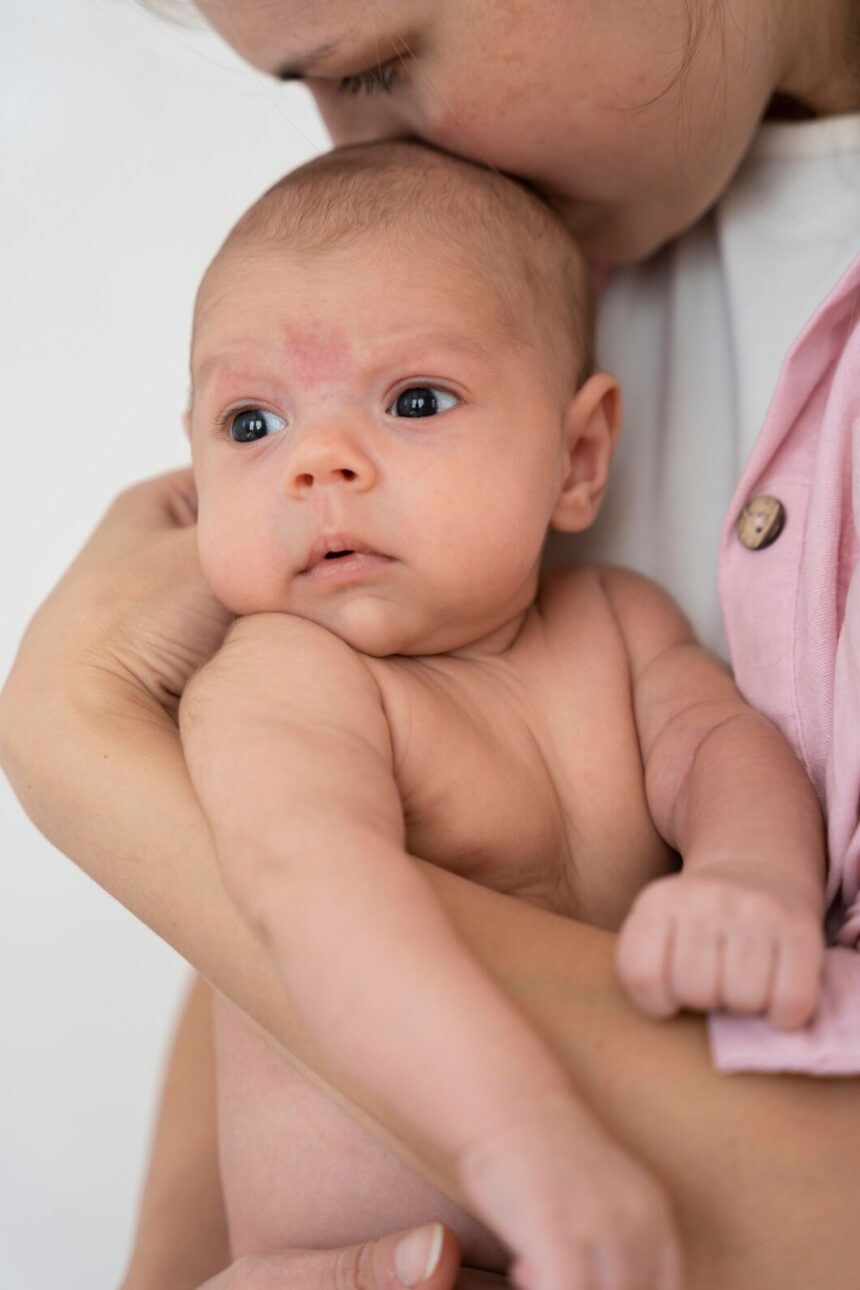Eczema, also known as atopic dermatitis, is a common skin condition characterized by inflammation, redness, itching, and rash. While eczema can affect individuals of all ages, it often manifests in infancy, with symptoms typically appearing within the first few months of life. Recognizing the early signs and symptoms of eczema in babies is crucial for prompt diagnosis and management. Here’s what parents need to know about identifying eczema in their little ones:
1. Persistent Itching:
One of the hallmark symptoms of eczema in babies is persistent itching. Infants with eczema may constantly scratch or rub their skin, especially in areas prone to irritation, such as the face, scalp, cheeks, and folds of the elbows and knees. While babies may scratch for various reasons, persistent itching that disrupts sleep or leads to skin damage is a common indicator of eczema.
2. Dry, Red, or Inflamed Skin:
Eczema often presents as dry, red, or inflamed patches of skin that may appear rough, scaly, or cracked. These areas of affected skin may be accompanied by small bumps, blisters, or oozing lesions, particularly during flare-ups. The severity and distribution of eczema lesions can vary widely among infants, with some experiencing localized patches and others exhibiting more widespread involvement.
3. Rash or Eruptions:
Babies with eczema may develop a rash or eruption on their skin, characterized by redness, swelling, and irritation. The rash may be localized to specific areas, such as the cheeks, chin, or chest, or it may spread to other parts of the body over time. Eczema rashes are often itchy and uncomfortable for infants, leading to increased fussiness and irritability.
4. Thickened or Crusted Skin:
In chronic or severe cases of eczema, affected skin may become thickened, leathery, or crusted over time. This phenomenon, known as lichenification, occurs as a result of repeated scratching and rubbing of the skin, leading to thickening of the outer layer (epidermis) and loss of skin elasticity. Lichenification is more common in areas of frequent scratching, such as the wrists, ankles, and neck.
5. Fluctuating Symptoms:
Eczema symptoms in babies often fluctuate, with periods of exacerbation (flare-ups) followed by periods of remission (calm periods). Flare-ups may be triggered by various factors, including exposure to irritants, allergens, changes in temperature or humidity, stress, or illness. Parents may notice that their baby’s eczema symptoms worsen in response to certain triggers or environmental conditions.
6. Sleep Disturbances:
Infants with eczema may experience sleep disturbances due to itching, discomfort, or pain associated with their skin condition. Itching can be particularly bothersome at night, leading to difficulty falling asleep, frequent waking, and restless sleep patterns. Sleep disturbances not only affect the baby’s quality of life but can also impact parental sleep and overall family well-being.
7. Irritability or Fussiness:
Babies with eczema may exhibit signs of irritability or fussiness, especially during flare-ups when their symptoms are more pronounced. The discomfort and itchiness associated with eczema can make babies irritable, restless, and difficult to soothe, leading to increased crying and agitation.
8. Avoidance of Touch or Clothing:
Due to the sensitivity of their skin, babies with eczema may show aversion to touch or certain types of clothing. They may resist being held, cuddled, or dressed in clothing that feels rough or abrasive against their skin. Parents may observe their baby’s preference for soft, breathable fabrics and loose-fitting garments that minimize friction and irritation.
9. Susceptibility to Infections:
Eczema-prone skin is more susceptible to bacterial, viral, and fungal infections, which can exacerbate symptoms and prolong healing. Babies with eczema may develop secondary infections, such as impetigo (bacterial infection), herpes simplex (cold sores), or candidiasis (yeast infection), particularly in areas of broken skin or open wounds.
10. Family History of Eczema or Atopic Conditions:
Babies with a family history of eczema, allergic rhinitis (hay fever), asthma, or other atopic conditions are at increased risk of developing eczema themselves. Genetic factors play a significant role in the development of eczema, with inherited predispositions contributing to immune dysregulation, skin barrier dysfunction, and allergic sensitivities.
Early recognition of the signs and symptoms of eczema in babies is essential for timely diagnosis and intervention. While eczema can be challenging to manage, especially in young infants, appropriate treatment and skincare practices can help alleviate symptoms, reduce flare-ups, and improve overall quality of life for affected infants and their families. Parents who suspect their baby may have eczema should consult a pediatrician or dermatologist for evaluation, guidance, and personalized management strategies tailored to their baby’s specific needs. With proper care and support, babies with eczema can thrive and enjoy healthy, happy skin as they grow.










